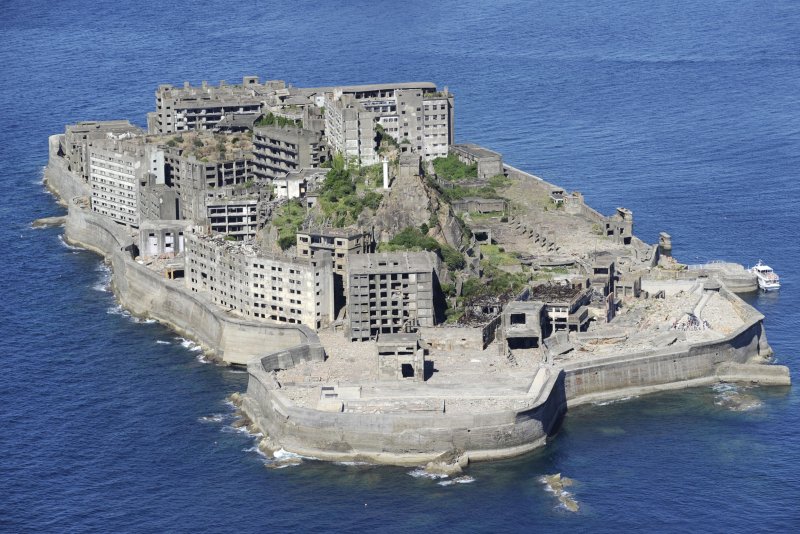South Korea summoned the Japanese ambassador to Seoul over a wartime labor dispute on Monday. Hashima or “Battleship” Island in Japan, was a site for Korean and Chinese forced labor during wartime. File Photo by Yonhap/EPA
June 15 (UPI) -- South Korea expressed regret and summoned the top Japanese diplomat to Seoul over information omission regarding Korean wartime laborers.
Seoul foreign ministry spokesman Kim In-cheol said Monday South Korea objects to the concealment of colonial-era wartime labor and their exploitation by Japanese authorities, South Korean news services Money Today and Tongil News reported.
"The [South Korean] government strongly protests the contents of an exhibition made available to the public at the Industrial Heritage Information Center [in Japan] on Monday, which fails to honor the recommendations of the UNESCO World Heritage Committee and the follow-up measures promised by Japan, following the registration of Japan's early modern industrial facilities with the committee in July 2015," the ministry said in statement.
According to Seoul, the Japanese pledged to apply "concrete follow-up measures" to implement the recommendations of the World Heritage Committee. Japan recognized that many Koreans were mobilized into the war effort against their intentions, and toiled under harsh conditions, the foreign ministry said Monday.
"We find it deeply regrettable content that completely distorts historical facts" is on display in Japan, Seoul said.
South Korea's complaint comes after the Japanese center opened a new exhibit on sites of Japan's Meiji Industrial Revolution on Monday.
Japan received a UNESCO endorsement for 23 major industrial sites built in the late 19th to early 20th centuries. In 2015, Seoul said Japan forced nearly 60,000 Koreans to work in slave labor conditions at 11 of the sites.
One of the sites, Hashima or "Battleship" Island, was a notorious site before and during wartime. In 2017, a South Korean action film about the island became a box-office hit and garnered local movie awards.
In 2015 Japan agreed to include the use of forced labor in the explanation of facilities.
Earlier this month a South Korean court began a procedure that could lead to the liquidation of seized South Korea-based Japanese corporate assets.















